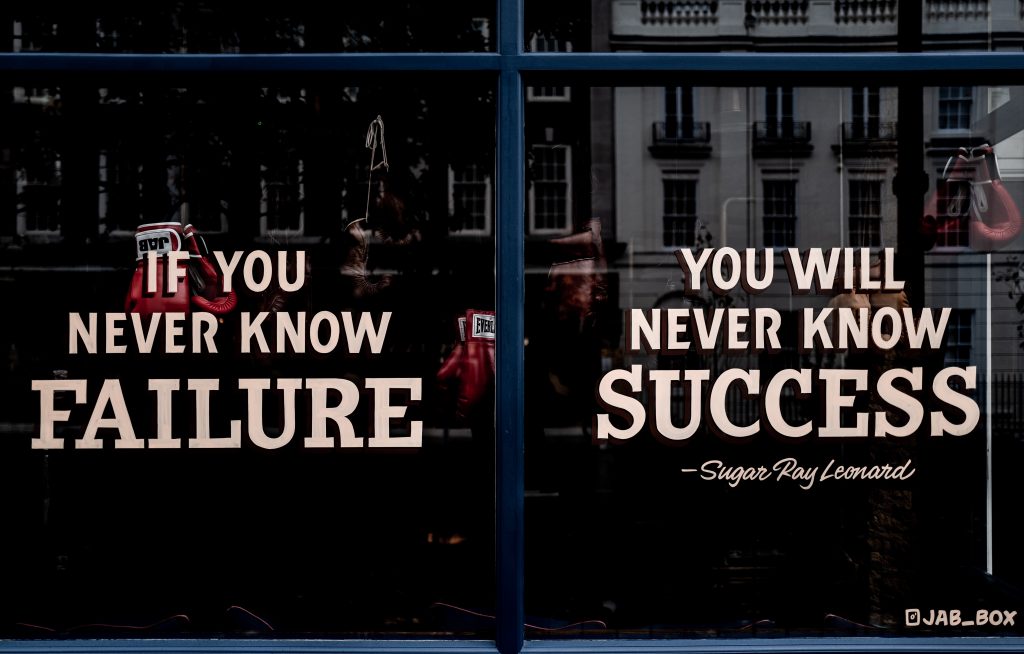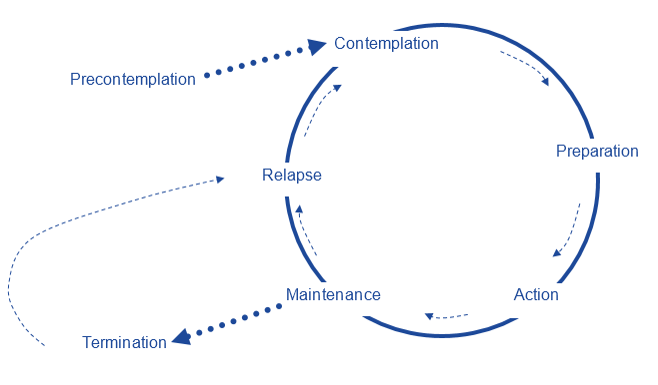Why You Don’t Suck When You Fail

How your goals ARE within reach!
Perhaps you have a long-term dream or goal you’d like to accomplish. Whether you are trying to quit smoking, develop a health or fitness lifestyle or any other goal you have in mind, you have to be ready to change.
Throughout the last decade, people have asked me how I stay motivated to continue to train for a triathlon, run a marathon or various other things in my life. They ask me how I stay disciplined.
What is discipline?
Here it means to bring to a state of order and obedience by training and control. Discipline doesn’t come from someone telling you what to do. It starts by taking actionable steps.
It takes a change in your behavior. Every day.
Change is a process. It can be emotional. Each of us goes through denial, self-doubt, elation, excitement, and so many other emotions. Our minds go through depths of feelings because we know we have to change in order to maintain behavior.
Let’s step back a moment and look at the stages of behavior.
Anything that changes your values changes your behavior. ~ George A. Sheehan
Stages of Behavior
There are five stages of behavior outlined by researchers James O. Prochaska and Carlo C. DiClemente called the transtheoretical model (TTM). This model was introduced as part of a study helping individuals to stop smoking.

Precontemplation
In this stage, the person isn’t considering a change. They feel they have no control over their behavior. Or they don’t even realize their problem is an issue.
Contemplation
The individual is thinking about making a change. They have realized they need to take action.
Preparation
The individual is actually ready to make a change and begin to take small steps to change.
Action
The person has made the modifications to their behavior. They are living the steps to change every day.
Maintenance
Change has been on-going for at least six months. This is the work to prevent relapse.
Recycle or Relapse wasn’t in the original model, but it does happen. Changing long-term behaviors requires the help of outside resources like family, friends, groups, coaches, doctors, etc.
The model is not linear. In a spiral or circular model, relapse provides the chance to determine what didn’t work in order to make tweaks in the process for the next go around. People may go through the progression several times.

In my own training, I have relapses. The relapse may be due to motivation, burn-out or injury. What I have discovered in my own life is there are other qualities that are not addressed in the above model. I use these characteristics as a way to discipline myself when I’ve created a goal.
Whether you think you can or you think you can’t, you’re right. ~ Henry Ford
• Attitude – How you think is everything. There is much to be said about having a positive attitude. Many tell me I am a positive person. If I wasn’t, I would be miserable. No one wants to be miserable, but we sure do create unnecessary misery for ourselves.
• Conscious – Tune in. It’s taken years, but I’ve learned to become completely aware of my body, my thoughts, and my feelings. Meditation is one of the tools I practice to stay mindful of the moment.
• Determination – This is my preparation and action mode. The goal has been set. Yes, I will have relapses.
• Expectations – I used to think if I didn’t have expectations, I wouldn’t be disappointed. I know some days are going to be better than others, so I don’t beat myself up when something changes.
• Inspiration – I love real-life stories of others going through their own process and struggles. We’re all human. There are so many people and quotes I look to for inspiration.
• Intention – What have I set out to do to get me to the end goal? I write down intentions. You might create a vision board.
• Past experiences – What worked? What didn’t? We learn from our experiences. I keep a log of my workouts when I am in training. These logs come in handy later so I can see where I struggled and where I succeeded.
• Self-control – I’ve learned to practice patience with myself and others. You may not be able to control what happens on the outside, but you can control what happens on the inside. We’re all on a learning curve of some kind. Be kind to others. You have no idea what they are going through.
How long does it take to change a habit?
According to a study by Phillippa Lally, it can take an average of 66 days to change a behavior. Of course, it depends on circumstances, environment, and the person. It doesn’t mean if you miss a day or two, or more, you have failed. It simply means behavior changed for a small period of time. The process does require consistency, however. The good news is you can pick up where you left off. We’re human. We aren’t perfect. You are making progress as the relapses become less frequent.
As soon as you wake in the morning, you go through a decision-making process. You make decisions all day every day. You decide if you should hit the snooze button. You decide if you should make coffee or tea. You decide what to wear for the day. You decide how you want to feel every moment of the day. You decide how others make you feel and how you will react. You have choices.
To change a habit, make a conscious decision, then act out the new behavior. ~ Maxwell Maltz
What if you found out you had to take medicine every day for a health condition? Taking that medicine every day is change to your life. It becomes a change in your behavior so you can maintain your health or get better. There is a decision-making process happening. You might write down on your calendar or prepare a pill box as small tasks that turn to habits so you’ll take your medicine.
When I begin training for a triathlon, I make choices to succeed. Each step helps me get closer to a goal of finishing a race or being faster in that race. I prepare a detailed plan. The plan is actionable. Run 3 miles, swim 1000 meters. You can do the same. Maybe you just want to drink a large glass of water with dinner. Use a calendar and tick marks to watch your progress. Skipping one day of training or one day of drinking water isn’t going to hinder the process. You just get back on track.
Throughout the entire process, you’ll be managing expectations of yourself. Stay committed to the system one step at a time. One moment at a time. Whether it takes you 67 days or 467 days, you’ll have to put in the work. Discipline takes attention. It takes consistency. We are all a work in progress.
